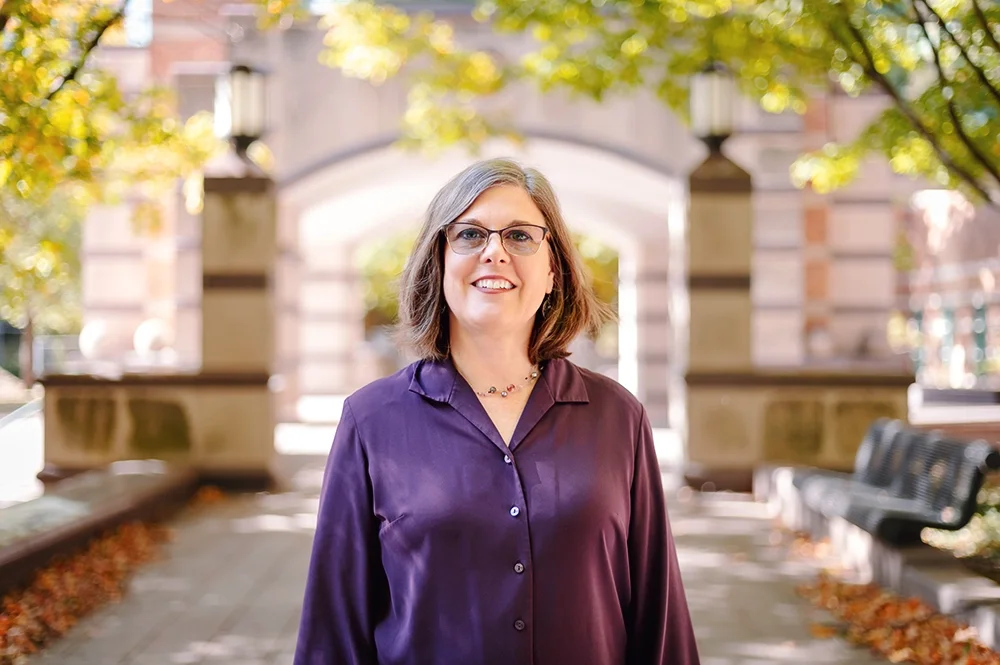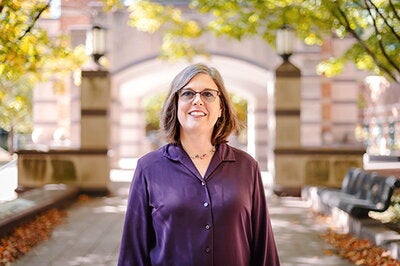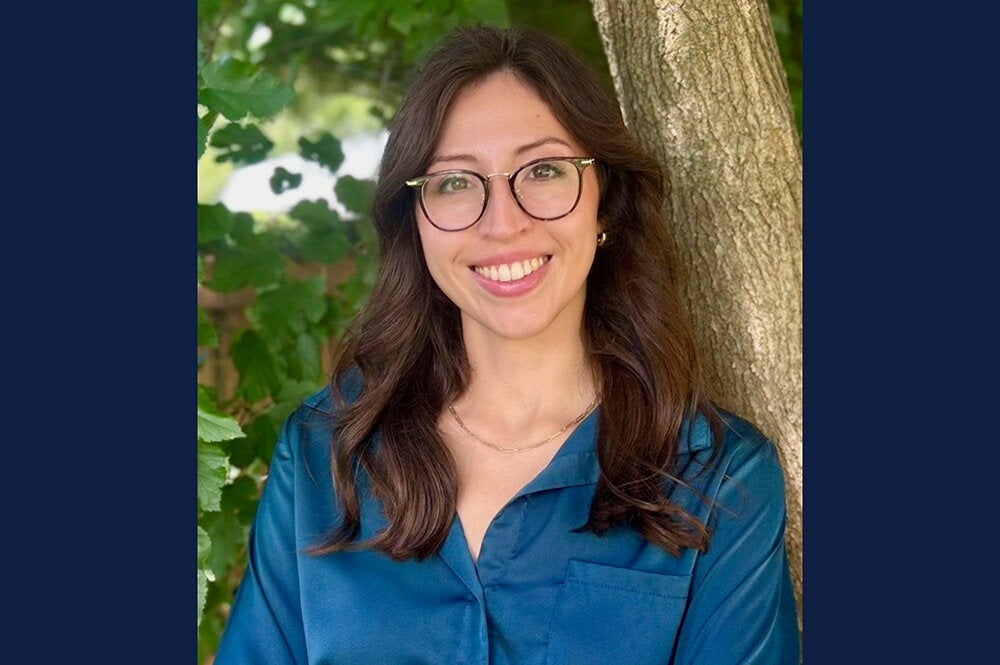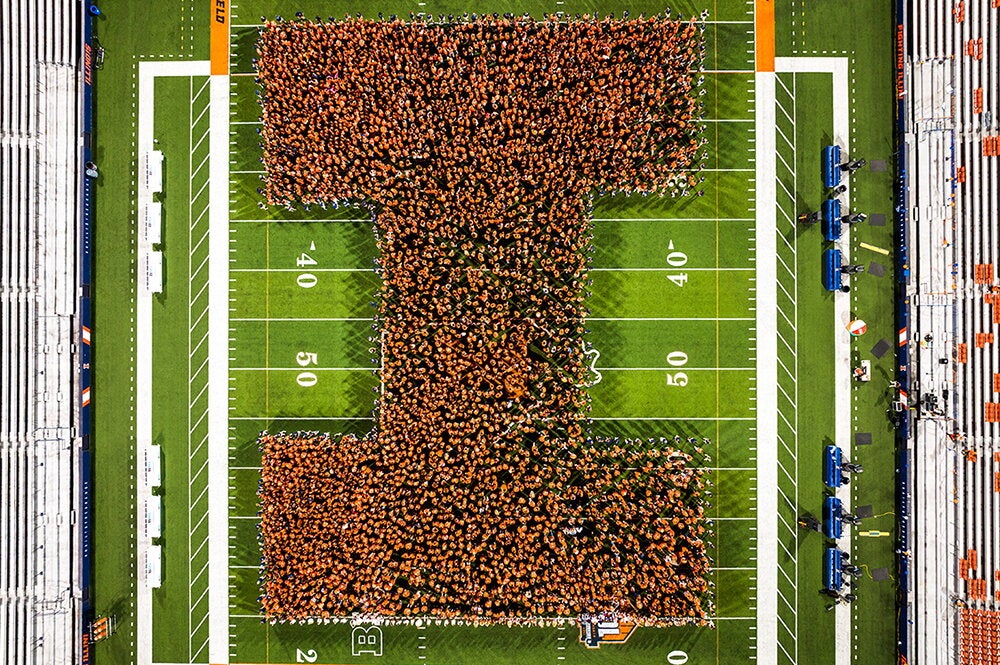

Psychology and neuroscience professor Kara Federmeier will deliver the 2026 Dean’s Distinguished Lecture at Alice Campbell Alumni Center 4 p.m. March 4, 2026.
The Dean’s Distinguished Lecture series sets up an annual presentation from a distinguished faculty member at the College of Liberal Arts & Sciences. Previous presentations have covered subjects in classics, chemistry, anthropology, communications, history, and biology.
Federmeier, who also co-leads the Illinois Language and Literacy Initiative at the Beckman Institute, plans to present on how the brain derives meaning from words. This process can be observed through measuring the electrical activity in a participant’s brain as they read text or listen to speech. Over the course of milliseconds, the brain translates those sights or sounds into something meaningful.
This research is conducted in the Cognition and Brain Lab (CABlab) in the Psychology Building and Beckman Institute. The CABlab studies younger and older adult participants to compare how their brains make sense of language and the world, with the long-term goal of finding ways to keep those processes working as best they can as people age.
Federmeier will also discuss how the left and right hemispheres of the brain behave differently when presented with text or speech. The left brain is more eager to predict the next words in a sentence, while the right brain waits to see what words are actually there.
“By studying those funny little waveforms recorded from the brain in hundreds of studies, [Federmeier] has pieced together an understanding on how we ascribe meaning to what we read or see,” said Diane Beck, psychology department head and professor. “We do not just passively wait for the word or image to arrive but are constantly making predictions about what might happen next.”
In a recent research paper, Federmeier, University of Nevada Las Vegas professor Melissa Troyer, and University of Illinois professor emerita Elizabeth Stine-Morrow studied how having knowledge on a specific topic influences how a person’s brain processes sentences about that topic.
This was done by presenting participants with sentences about Harry Potter. The last word of the sentence would either be correct, incorrect but close, or incorrect and unrelated. For example, “There is a branch of magic focused on changing the form of objects. It is called …” The correct answer is “Transfiguration,” the close ending is “Divination” (another branch of magic in the book series), and the unrelated ending is “alley.” The experiment measured how the language comprehension process differed across these scenarios, depending on how much knowledge a person has about the Harry Potter series.
What sets this study apart from others is its focus on older adults, aged 50 to 81 years. The abstract points out how older adults should have a greater trove of knowledge accumulated over their longer lives. However, most research on language comprehension uses college student participants — often young adults.
“This leaves a critical gap in understanding how knowledge impacts comprehension in other populations, including healthy older adults,” the study said.
The study concluded that cognitive development does not stop in young adulthood, and differences between how younger and older adults comprehend language are not inherently signs of deficit.


